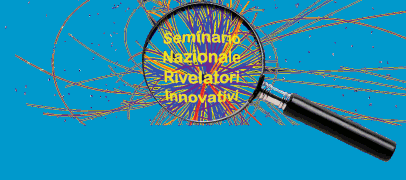Applications of detectors and technologies in the energy field
Marco Ripani
With the INFN_E strategic project, the broad competences of INFN on basic theoretical aspects, accelerator design, construction and operation, radiation/particle detector design, construction and operation can be applied to several topics where R&D projects can be developed with the goal of promoting technology transfer. In the framework of nuclear safety and security, innovative systems and instrumentation for radiation monitoring, as well as advanced accelerator techniques for the characterization of waste containers, can be applied to waste storage sites, port security and radiation surveys. In the framework of fission and fusion, topics include neutron physics aspects, advanced nuclear systems for transmutation of nuclear waste, techniques to heat the plasma, accelerators for material irradiation and innovative neutron monitors.
| Marco Ripani is a senior scientist at INFN Genova. He has been working for many years on the structure of nuclei, in particular excited states of the nucleon in the nuclear medium, and on the non-perturbative structure of the nucleon studied via meson photoproduction and electron scattering. In particular, he has been working on the search for new excited states of the nucleon via electroproduction of multimeson final states and the spin structure of the nucleon at very low momentum transfer. He participated to experiments at INFN-LNF, NIKHEF (Amsterdam, the Netherlands), ESRF (Grenoble, France) and Jefferson Lab (Newport News, USA). He has been co-spokesperson of 3 experiments at Jefferson Lab and has been spokesperson of the international CLAS collaboration at Jefferson Lab. His main expertise is in the field of detectors based on organic and inorganic scintillators and in the development of data analysis codes. |
|
Since a few years his main research interest are nuclear physics applications in the field of energy, i.e. generation IV fast reactors and Accelerator Driven Systems (ADS), radioactive waste, neutron sources, neutron detectors. Since 2012 he is national coordinator of the INFN_E project dedicate to developments and technology transfer in the field of nuclear energy, nuclear security and safety. Besides leading the INFN_E project, he is currently involved in the development of innovative diamond detectors and studies of low-power ADS as training facilities and prototypes of waste incineration technology. Within this field, he is INFN scientific co-advisor for the framework agreement between INFN and the SOGIN company for research on waste management.
Marco Ripani is author of more than 200 articles in international journals with referee. He is currently member of the INFN Nuclear Physics Funding Committee (Committee 3), where he is representing the Genova group. He is currently also member of the Executive Board of the RFX Consortium (CNR-ENEA-INFN- University of Padova) for fusion research. He has been National co- spokesperson of INFN experiment “AIACE” from 2002 to 2008 and member of the INFN Computing and Networking Committee representing the INFN Genova unit from 2008 to 2011. He has been member of the Jefferson Lab PAC from 2006 to 2009, member of the joint ELSA-MAMI (Bonn-Mainz) PAC from 2002 to 2012 and is currently member of the SAC for the new Collaborative Research Center (CRC-1044) at the University of Mainz “The Low-Energy Frontier of the Standard Model: From Quarks and Gluons to Hadrons and Nuclei” funded by the German Research Foundation (DFG).
Marco Ripani is author of more than 200 articles in international journals with referee. He is currently member of the INFN Nuclear Physics Funding Committee (Committee 3), where he is representing the Genova group. He is currently also member of the Executive Board of the RFX Consortium (CNR-ENEA-INFN- University of Padova) for fusion research. He has been National co- spokesperson of INFN experiment “AIACE” from 2002 to 2008 and member of the INFN Computing and Networking Committee representing the INFN Genova unit from 2008 to 2011. He has been member of the Jefferson Lab PAC from 2006 to 2009, member of the joint ELSA-MAMI (Bonn-Mainz) PAC from 2002 to 2012 and is currently member of the SAC for the new Collaborative Research Center (CRC-1044) at the University of Mainz “The Low-Energy Frontier of the Standard Model: From Quarks and Gluons to Hadrons and Nuclei” funded by the German Research Foundation (DFG).

